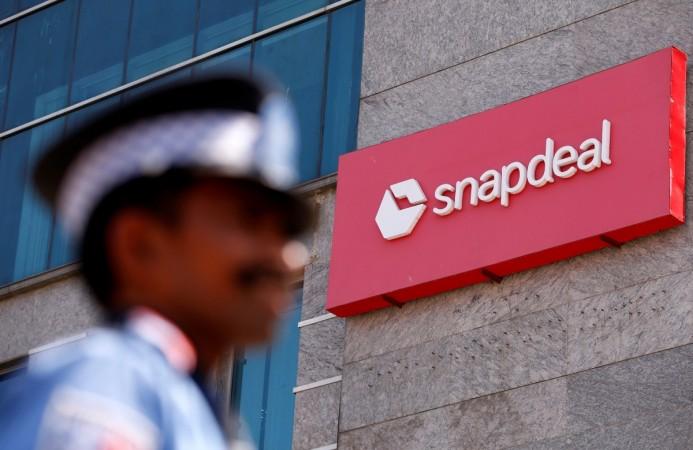
Snapdeal, India's third-largest e-commerce player, has been in trouble lately. From top-level executives leaving the company to its founders taking a 100 percent pay cut, nothing seems to be working for the New Delhi-based online retailer.
After struggling for months, the company is now apparently looking for a savior, and if on-going speculations are anything to go by, it's exploring a merger with Flipkart.
One of the main reasons for the proposed merger is obviously the rough patch Snapdeal is going through right now.
In February, the company had to let got of over 600 employees while its valuation has plunged from $6.5 billion during its last funding round in February 2016 to below $2 billion. What is even more striking is that the company is reportedly left with limited cash reserves that will last for only 10 to 12 months.
Although Snapdeal has so far denied all rumours of a sale, a letter to the company's employees from its co-founders, Kunal Bahl and Rohit Bansal, reads more like a confirmation of an imminent sale. The co-founders said in the letter that the employees' well being is the top priority for them "as the way forward becomes clear".
"We will do all that we can, and more, in working with our investors to ensure that there is no disruption in employment and that there are positive professional as well as financial outcomes for the team as the way forward becomes clear," the duo said in the letter.

Such assurances may not be comforting for employees at this stage, especially when speculation of a buyout is swirling. The company has been at the center of much takeover rumour over the past few weeks, with Japan's Softbank -- its biggest investor -- said to be keen on selling the company to Tiger Global-backed Flipkart.
If the deal materialises, it will not only become the biggest merger in India's $10 billion (Rs. 6,500 crore) e-commerce sector, but will also help Flipkart fortify its position in the fight against Amazon, which launched its first online shopping site in India to capitalise on the country's growing e-commerce market.
Amazon committed an investment of $5 billion in India, which is higher than the total individual funds raised by Flipkart (around $3.2 billion) and Snapdeal (around $1.8 billion). Therefore, a merger of forces would be the best way for the home-bred e-retail players to confront Amazon; while SoftBank would also provide Flipkart with additional funding firepower to sustain the battle against the American e-commerce giant for a longer period.
Flipkart can also leverage Snapdeal's stronghold in the north to expand its supply chain reach in the country. Given the fact that e-commerce growth in India all but stalled in 2016, Flipkart could use Snapdeal to stay afloat.
In 2014, the Indian e-commerce sector grew at a rate of 125 percent, which touched 175 percent in 2015. However, in 2016, the growth rate crashed down to near zero.
"This deal gives Flipkart a way to expand its supply chain reach quickly and inorganically by getting access to Snapdeal's numerous small and big warehouses, especially in Northern India," market research firm RedSeer Consulting said in a statement.
A merger between Snapdeal and Flipkart seems to be the most logical strategy for both companies to beat Amazon at its own game. But will Snapdeal, as a brand, live on?
Flipkart took over Myntra, an Indian fashion e-commerce marketplace, in 2014. Since then the two have largely continued to run separately. Snapdeal, however, is a more direct competitor to Flipkart, therefore it's not clear what would happen to the Snapdeal brand if and when the acquisition takes place.








